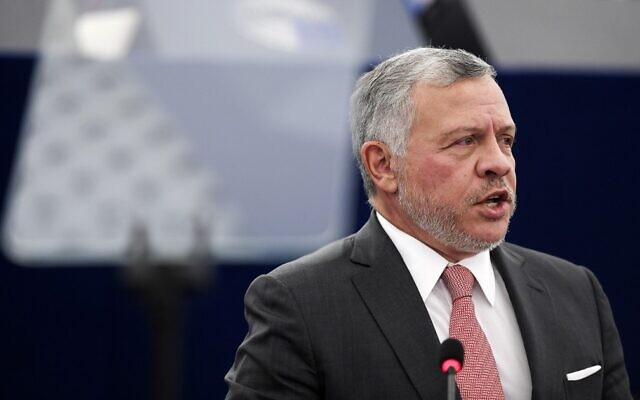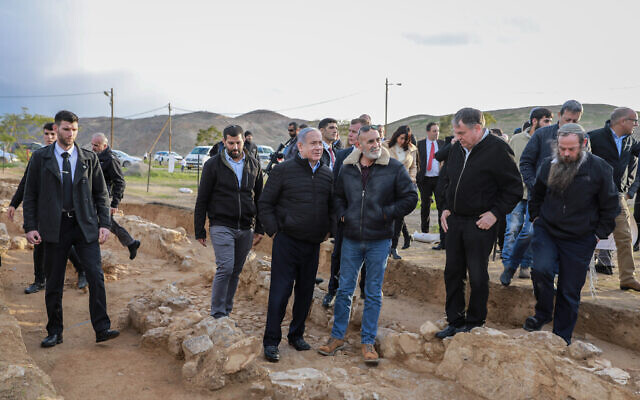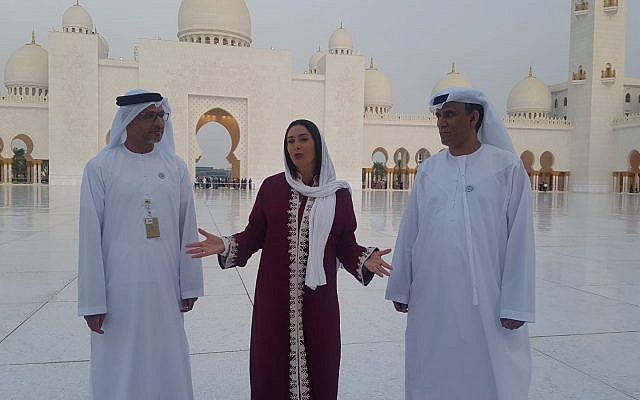Monarch tells US lawmakers plans to annex settlements and Jordan Valley are ‘unacceptable’ and he remains full committed to establishment of an independent Palestinian state

Jordan’s King Abdullah II on Tuesday warned US lawmakers that the Israel’s plan to annex parts of the West Bank was “unacceptable” and would undermine regional stability.
Abdullah spoke with US senators and emphasized the kingdom’s commitment to the establishment of an independent Palestinian state.
“Any unilateral Israeli measure to annex lands in the West Bank is unacceptable and undermines the prospects of achieving peace and stability in the region,” the royal court said in a statement.
The Jordanian monarch is speaking to US lawmakers and several congressional committees to voice his opposition to Israel’s plans.
On Wednesday he is scheduled for video congressional appearances with the Senate Foreign Relations and House Foreign Affairs committees.
Abdullah, who has previously warned that Jordan could tear up the peace deal with Israel if the plans go ahead, has reportedly refused to take phone calls from Prime Minister Benjamin Netanyahu.
The report Monday by the Palestinian Ma’an news agency would seem to mark a new low in Israel-Jordan ties, which have been tested repeatedly in recent years.
There was no confirmation from official Jordanian or Israeli sources.
According to the report, which cited a Jordanian official, Amman is also refusing to set a date for a meeting with Israeli Defense Minister Benny Gantz to discuss the annexation plans and the Trump administration’s peace plan.
Gantz has sought to coordinate the move with a wider range of allies than the US, but Jordan has vociferously rejected annexation, with the king warning it could lead to a “massive conflict.”
Jordan is one of two Arab countries that has official diplomatic ties with Israel, along with Egypt.
Under a coalition deal between Prime Minister Benjamin Netanyahu and Blue and White leader Benny Gantz signed last month, the government can pursue annexation of all the settlements and the Jordan Valley — the 30% of the West Bank allocated to Israel under the Trump administration peace plan — from July 1. The Trump administration has indicated it will not oppose Netanyahu’s declared plans to do so, providing Israel accepts its “Peace to Prosperity” plan, which conditionally provides for a Palestinian state on the remaining 70% of the territory.

The Palestinians have rejected the US plan, and earlier this month said they had submitted a counter-proposal for a demilitarized Palestinian state to the Middle East peacemaking Quartet — the US, EU, UN and Russia.
The plans have threatened to upend years of diplomatic work forging quiet ties with Gulf states. On Friday, the United Arab Emirates’ influential ambassador to the US, Yousef al-Otaiba, warned in an op-ed published in an Israeli paper that Abu Dhabi would freeze normalization if annexation moves ahead.

However, on Tuesday, a top UAE official indicated that they would still work to keep cooperating with Israel on other issues even if annexation goes ahead.
Addressing a major US-Jewish online conference, Minister of State for Foreign Affairs Anwar Gargash reiterated his view that the decades-long Arab boycott of Israel has not yielded the desired results and advocated for “open lines of communications” and increased liaison with Jerusalem in various areas, such as technology and health.
He reiterated Abu Dhabi’s opposition to Israel’s planned unilateral annexation of parts of the West Bank, but underlined his country’s policy of “decoupling the political from the non-political.”
As reported by The Times of Israel
